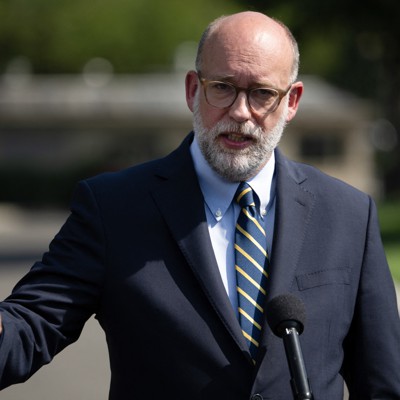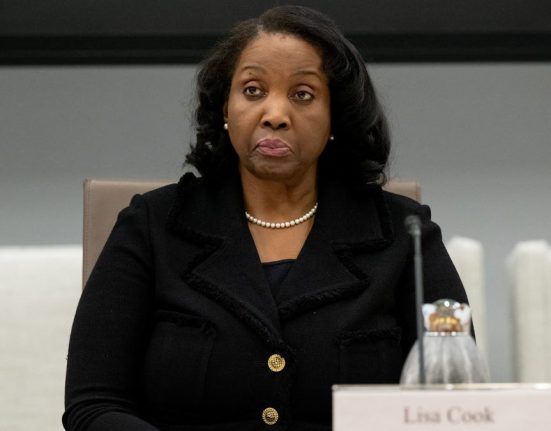The Trump administration has taken steps to withhold federal funds previously authorized by Congress, announcing on Friday it had submitted a request to Congress that would turn into a “pocket rescission.”
President Trump formally submitted a rescission request to Congress Thursday evening, asking lawmakers to claw back $4.9 billion in funding authorized for the U.S. Agency for International Development. Due to the timing of the request and the intricacies of federal appropriations law, the Office of Management and Budget said on Friday the request essentially amounted to Trump unilaterally canceling the funding.
The announcement drew quick rebukes from lawmakers on both sides of the aisle, who said the moves were illegal and circumventing the standard process for revoking funds. Trump earlier this year signed into law a measure to rescind more than $9 billion in spending on foreign aid and public broadcasting.
The White House previously told lawmakers it was considering employing “pocket rescissions,” a strategy that enables spending to expire before agencies can allocate it. The approach provides an avenue to circumvent Congress in the withholding of funds.
The 1974 Impoundment Control Act allows the president to propose rescinding funding previously approved by Congress. Lawmakers have 45 days to consider the request and OMB can direct agencies not to spend the funding proposed for rescission for the entire 45-day period, regardless of when Congress acts.
Agencies must spend most of the appropriations they receive by Sept. 30, the end of the fiscal year. By issuing a rescission proposal in late-August, the funding will be frozen until it expires. OMB under Trump, and while Vought was deputy director, began the process for a similar effort toward the end of fiscal years 2018 and 2019, but decided not to pursue it.
No administration has executed a pocket rescission in about 50 years.
In 2018, the Government Accountability Office, which adjudicates the lawfulness of impoundments, found the ICA’s legislative history, Supreme Court precedent and the constitutional framework of the legislative and executive branches “provide no basis to construe the ICA as a mechanism by which the president may, in effect, unilaterally shorten the availability of budget authority by transmitting rescission proposals shortly before amounts are due to expire.”
GAO has already cited the Trump administration for numerous violations of the impoundment law, saying it has illegally withheld funds from the departments of Energy, Health and Human Services, Transportation and others.
Lawmakers quickly pushed back on Trump’s latest efforts, though actually stopping it would require legislative action or intervention in federal court.
“GAO has concluded that this type of rescission is unlawful and not permitted by the Impoundment Control Act,” said Sen. Susan Collins, R-Maine, who chairs the Senate Appropriations Committee. “Article I of the Constitution makes clear that Congress has the responsibility for the power of the purse. Any effort to rescind appropriated funds without congressional approval is a clear violation of the law.”
Sen. Patty Murray, D-Wash., the top Democrat on the spending panel, called on her colleagues to reject Trump and OMB Director Russ Vought’s “end run around Congress.”
“Russ Vought would like us all to believe that making this rescissions request just weeks away from the end of the fiscal year provides some sort of get-out-of-jail free card for this administration to simply not spend investments Congress has made,” Murray said. “It emphatically does not. Legal experts have made clear this scheme is illegal and so have my Republican colleagues.”
State Department Secretary Marco Rubio announced on Friday that Vought would oversee the “closeout” of USAID. Rubio has led the agency on an acting basis, though it has essentially ceased to exist after the administration laid off virtually its entire staff.
With current funding for all of government set to expire at the end of September, lawmakers are facing a tight timeline to avoid a shutdown. The House and Senate remain significantly divided on funding levels for fiscal 2026 and Democratic leaders this week implored their Republican counterparts to meet with them to discuss a path forward.
Senate Minority Leader Chuck Schumer, D-N.Y., said the pocket rescission announcement made it clear that Trump and congressional Republicans are “hellbent on rejecting bipartisanship” ahead of the government funding deadline.
“As the country stares down next month’s government funding deadline on Sept. 30, it is clear neither President Trump nor Congressional Republicans have any plan to avoid a painful and entirely unnecessary shutdown,” Schumer said. “It doesn’t have to be this way. Reasonable Republicans don’t have to go along with this madness.”
Passing any funding measure for fiscal 2026 will require Democratic support in the Senate. Schumer suggested, however, that if Republicans insist on “going it alone,” Democrats “won’t be party to their destruction.”







